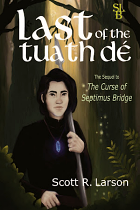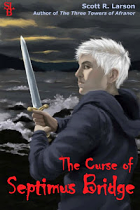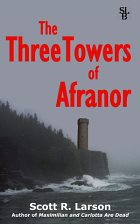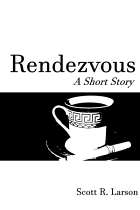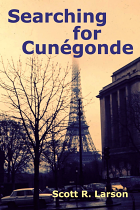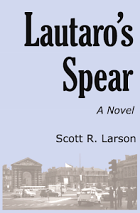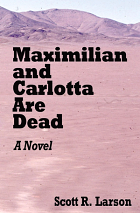May it be again
I don’t recognize this world anymore. At least during the month of May.
For one thing, this month interrupted my decades old pity party about the demise of Dark Shadows. My period of mourning began when ABC canceled the series in 1971. I actually wrote a letter to the network saying that I would not be watching their network at all until they brought it back—a threat I made good on for quite a few years. Actually, it wasn’t that hard because for quite a few years after that I didn’t even own a television set and a couple of those years I spent abroad. Eventually, I relented long after it was clear that no one at ABC cared whether I was watching or not.
But this month we got a brand new high-profile feature film, and not just some schlock production but a work by none other than Tim Burton himself with an excellent cast and an appropriately spooky score by Danny Elfman. There is nothing to complain about here. My raison d’être has gotten a bit smaller.
And then there’s the Cannes film festival. No, once again I wasn’t there, so that pity party can continue unabated. But something strange happened this year. For much of the duration of this year’s Festival de Cannes, the weather was actually better in Ireland than on the Côte d’Azur. If the truth be told, a lot of my unrequited desire to head to Cannes every May may have as much or more to do with climate as film. And, if that’s true, how perverse is it to travel to a (normally) perfect climate and then spend all one’s time in dark rooms?
As usual, I attended the festival vicariously by reading as many articles and reviews as I could while it was going on. And the vibe I was getting was definitely a downer. It sounded like everyone was watching new movies by the same five filmmakers who keep getting their films shown at Cannes year after year. The Palme d’or (which is French for “golden top prize”) went to Austrian director Michael Haneke (again) for Amour (which is French for “love”), which sounds like a very well made but entirely depressing and wrenching film. The Grand Prix (which is French for “second most grand prize”) went to Italy’s Matteo Garrone (again) for Reality, which was a satire and sounds like it could actually be a bit of fun. The Prix du Jury (which is French for “priced in at third place”) went to Britain’s Ken Loach (again) for The Angel’s Share, which is apparently a sort-of comedy about whiskey tasting and the struggles of unemployed youths in Glasgow.
The Prix de la mise en scène (which is French for “best director on the scene”) went to Mexico’s Carlos Reygadas (for the first time! although he did get the Prix de Jury five years ago) for Post Tenebras Lux (which is Latin for “after [Dark] Shadows light”), which sounds pretty much like a Carlos Reygadas movie, i.e., as described by the UK’s The Guardian, “a congealed Jungian stew that went down to a chorus of boos.” Note to people who are not obsessed with the traditions and conventions of the Festival de Cannes: booing is very common at film screenings and is understood to signify: I vote for this one! Give it a prize!
So, was this year’s Festival de Cannes as much of a downer and a rehash as those prizes make it sound? Don’t ask me. I wasn’t there. Let’s ask some people who were there. The Washington Post’s Ann Hornaday called the festival “stuck in a past era,” noting that none of the 22 films in competition was directed by a woman and that many of the directors being honored represented “fond looks back” rather than breaking new ground. The Irish Times’s Donald Clarke grumped (and rightly so) that he was not included among 50 journalists invited by Harvey Weinstein to see footage from Quentin Tarantino’s Django Unchained (mmm! spaghetti!) and Paul Thomas Anderson’s The Master. Greek-born reactionary Spectator columnist (he writes the very entertaining “High Life” column) Taki Theodoracopulos was on his yacht filming a walk-on with Alec Baldwin for a movie called Seduced and Abandoned. Taki’s summation of the Cannes scene: “The south of France reminds me of a beautiful woman who has used too much Botox and wears too much makeup and false eyelashes and goes out with a much too short and much too fat producer.” Aw, c’mon, Taki, tell us what you really think.
Of course, reading all these dismissive and critical comments about Cannes makes me want to go there even more—as long as it can be when the weather is nice and sunny. Wouldn’t it be great if there was a TV channel that covered the Festival de Cannes 24/7 while it was in session so that those of us who can’t travel there can at least watch it all. Of course, that’s not going to happen. Besides, if we want to spend part of May watching cheesy clothing and talent all done up with glitter and glamor, people in Europe can just watch the Eurovision.
The Eurovision Song Contest, which is broadcast pretty much all over Europe for three non-consecutive nights, wound up with its big finale the night before the closing night of the Festival de Cannes. It may not have the prestige and wealth of Cannes but it’s a lot more populist (and a bit more gay). It has all the same attraction of reality TV and artificially created TV talent shows with the added ingredient of national pride and competition and (in quite a few cases) humiliation.
For the second year in a row Ireland sent the Grimes twins, Jedward, to energetically bounce around the stage in more or less synchronized quasi-acrobatics while they sang another song of which the words really didn’t make a lot of sense. Last year’s song was “Lipstick”; this year’s was “Waterline.” For the life of me I can’t figure out what the title of either means in the context of the song. But I have to admit there is something compelling about so many (mostly) young artists singing and dancing their hearts out and showing off such energy and physical fitness. Not everyone was young, however. The UK trotted out Englebert Humperdinck (kids, ask your grandparents) with a song called “Love Will Set You Free.” Sadly, he came in second to last. Doing much better were the Russian grannies (really) called Buranovskiye Babushki in traditional costumes baking bread and singing “Party for Everybody.” They came in second.
The country in which I live may have come in 19th (out of 26), but at least the country where three of my great-grandparents were born came in first, with a song called “Euphoria.” I’d like to think that Sweden’s Loreen won because, reportedly, she was the only contestant who met with human rights activists while in host country Azerbaijan.
If nothing else, I finally found the best use of Twitter. It didn’t really work for me to read tweets while watching the Academy Awards. But it was perfect while listening to performance after performance in which many of the artists looked and sounded the same. A sampling of tweets:
• @mailithepigeon: “Seriously, Lithuania, great country and everything, but the 90s really want their songs back.”
• @Charles_HRH: “BREAKING NEWS. Englebert Humperdinck spotted pleading with organisers and security backstage: ‘Please release me. Let me go.’”
• @Queen_UK: “Text from Angela Merkel: ‘Please tell me I’m not paying for this’”
Now I understand why Twitter was invented.
-S.L., 29 May 2012
If you would like to respond to this commentary or to anything else on this web site, please send a message to feedback@scottsmovies.com. Messages sent to this address will be considered for publishing on the Feedback Page without attribution. (That means your name, email address or anything else that might identify you won’t be included.) Messages published will be at my discretion and subject to editing. But I promise not to leave something out just because it’s unflattering.
If you would like to send me a message but not have it considered for publishing, you can send it to scott@scottsmovies.com.















